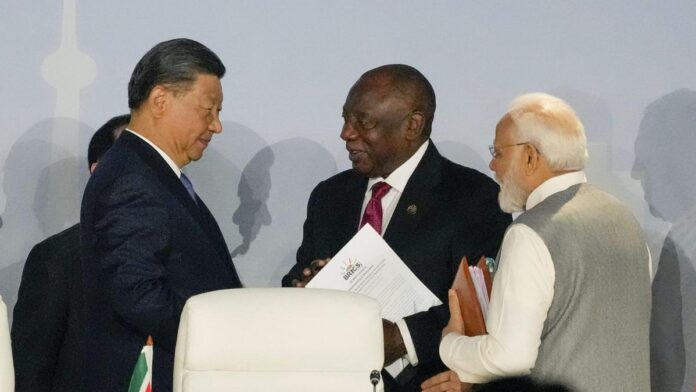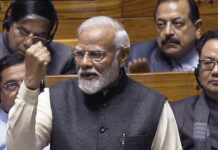President Xi Jinping urged Prime Minister Narendra Modi during discussions on Wednesday that both parties “should bear in mind the overall interests” of relations and “handle the border issue properly,” according to early reports from China’s Foreign Ministry on Friday.
Beijing said that the meeting took place “at the request” of Prime Minister Modi and was held concurrently with the BRICS Summit in Johannesburg.
Although neither side acknowledged a meeting on Wednesday, Foreign Secretary Vinay Kwatra stated on Thursday that following a chat between the two leaders, both parties had decided to take up efforts for the withdrawal of troops and de-escalation of tensions along the Line of Actual Control.
While Mr. Modi and Mr. Xi briefly discussed the need to “stabilise the LAC”—where a military standoff has been ongoing since April 2020—during the Bali G20 summit dinner last year, this is the first time in three years that the two leaders have spoken at length about the problem. The discussion might signal a thawing of connections that have been dormant.
The two leaders decided to “direct their relevant officials to intensify efforts at expedited disengagement and de-escalation,” Mr. Kwatra said, adding that the PM had “highlighted India’s concerns on the unresolved issues along the LAC in the western sector of the India-China border areas.”
In two remaining flashpoints, Demchok and Depsang, military commanders from opposing sides have recently been negotiating pullout terms.
Only that “the two leaders had a candid and in-depth exchange of views on current China-India relations and other questions of shared interest” was mentioned in the early Friday morning statement from Beijing regarding the talks.
In the statement, it was noted that “President Xi stressed that improving China-India relations serves the common interests of the two countries and peoples, and is also conducive to peace, stability, and development of the world and the region.”
In order to jointly protect peace and tranquilly in the region, the two sides should keep in mind the broader interests of their bilateral relations and handle the border problem properly.












